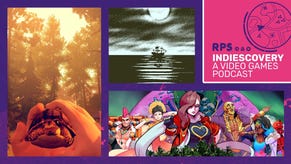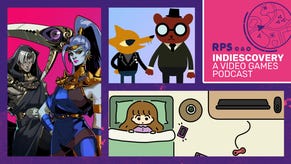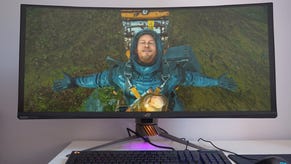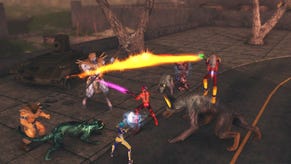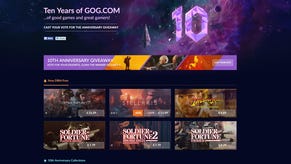Firewatch, Ford, And Copyright Infringement Online
The wrong kind of "Freedom"
Olly Moss's work on Firewatch [official site] is so beautiful and distinctive. It's how I became aware of the game before I even knew it was a game - pictures of his creations tweeted into my timeline. They tap into that glorious "See America" tradition of stylised, romanticised imagery of national parks and other awe-inspiring spaces.
I can see the appeal of that style when you're marketing a brand which trades on its American history and focus. But it looks like a Ford dealership has swiped Firewatch imagery without permission for use in an email marketing campaign.
Here's the image as per the Twitter account of Panic Inc who co-produced Firewatch:
The email blast only mentions the Quirk Ford dealership of Quincy, Massachusetts and, as far as I can tell it's limited to that specific dealership.
Campo Santo designer and writer, Sean Vanaman has made it clear that the usage was unauthorised:
Game Informer has some more information on their site - they phoned the dealership in question and got a few quotes, although Vanaman later refuted the dealership's version of events. Quirk later issued an apology:
I guess my interest here is in Vanaman's later responses. They're pretty pragmatic:
This particular incident made the news cycle because Firewatch is a distinctive game and Ford is a big name. Thus the copyright infringement centred around a recognisible artwork and a link to a globally recognised company. The initial impression I got reading about the story on multiple sites or via social media responses was a kind of mixture of "this is so flagrant" and "they should have known better".
Vanaman's point is an important one because he adds a reminder that "olly and his contemporaries get yoinked 100x a day". Where we differ (or at least from this tweet I think we might but short form internet communication makes it so hard to tell!) is that I don't think that's a non-story, exactly. It's more that it's representative of an ongoing problem with copyright law, intellectual property and the internet. This particular incidence isn't unusual - it's a non-story in that it's part of a drip drip drip of copyright infringement which happens every time someone creates something other people want to share or use. But it is a story in that it can help us talk about that online sharing culture and where it helps and where it falls short.
I like the Tumblr ability to reblog as a kind of "quote with attribution" function. Retweeting and the embedding of a tweet also help. Some image providers have also acknowledged changes in how we use content (and how they can't control that beyond a certain extent) - for example, Getty have a function where bloggers can embed imagery direct to their site. The blogger gets the high quality image so that's an incentive for them to do it, and the embed code adds Getty's credit info, photographer credit and so on. It also has a function where if you click the image you're taken to a page where you can buy it.
Here's a blog about the Getty stuff because it's really interesting. It only applies to editorial, non-commercial usage, by the way. For something like the Quirk ads you'd still have to pay to license the imagery.
Obviously the Getty solution is a very particular response and it's by a company with the resources to come up with such a scheme and then support it through massive amounts of content. Millions and millions of images all redirecting attention to the purchase page at the click of a button. For smaller-scale projects and artists that's not an option.
And so. The ease of saving and re-uploading an image. The lack of understanding of copyright law. The pervasive share culture of the internet which works for good as well as for ill and only haphazardly cares about attribution. That copyright law isn't a global constant and is only in fits and starts attempting to keep pace with online culture. That public domain means different things in different locations. That jurisdiction is tricky as all hell on the internet. Murky discussions about transformative works. Questions of whether a monkey might own a picture and what monkey ownership means for copyright...
What I'd actually like is to see intellectual property law taught as part of citizenship at schools. Not with the intent of turning kids into armchair lawyers, but more with a view to engendering understanding of how your actions online affect other people's work and their ability to make a living. The main purpose of copyright law is to promote creativity and progress. I feel like knowledge becoming more widespread could really help with discussions of how to make that work online.
Update: Just in case you wanted official closure here's the Campo Santo Twitter response to Quirk's apology:
And here's Panic Inc's response:


